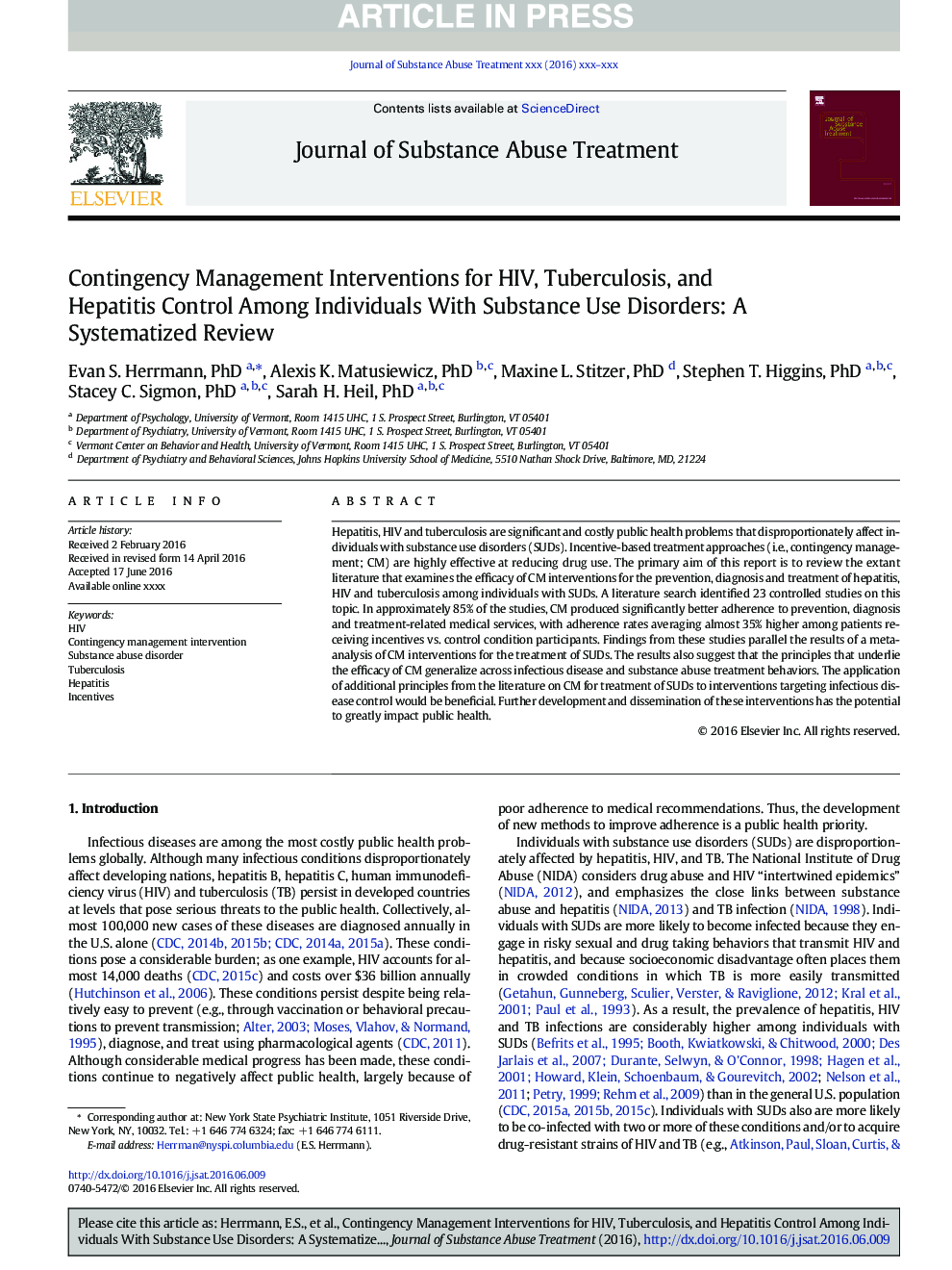| Article ID | Journal | Published Year | Pages | File Type |
|---|---|---|---|---|
| 4932419 | Journal of Substance Abuse Treatment | 2017 | 9 Pages |
Abstract
Hepatitis, HIV and tuberculosis are significant and costly public health problems that disproportionately affect individuals with substance use disorders (SUDs). Incentive-based treatment approaches (i.e., contingency management; CM) are highly effective at reducing drug use. The primary aim of this report is to review the extant literature that examines the efficacy of CM interventions for the prevention, diagnosis and treatment of hepatitis, HIV and tuberculosis among individuals with SUDs. A literature search identified 23 controlled studies on this topic. In approximately 85% of the studies, CM produced significantly better adherence to prevention, diagnosis and treatment-related medical services, with adherence rates averaging almost 35% higher among patients receiving incentives vs. control condition participants. Findings from these studies parallel the results of a meta-analysis of CM interventions for the treatment of SUDs. The results also suggest that the principles that underlie the efficacy of CM generalize across infectious disease and substance abuse treatment behaviors. The application of additional principles from the literature on CM for treatment of SUDs to interventions targeting infectious disease control would be beneficial. Further development and dissemination of these interventions has the potential to greatly impact public health.
Related Topics
Life Sciences
Neuroscience
Biological Psychiatry
Authors
Evan S. PhD, Alexis K. PhD, Maxine L. PhD, Stephen T. PhD, Stacey C. PhD, Sarah H. PhD,
